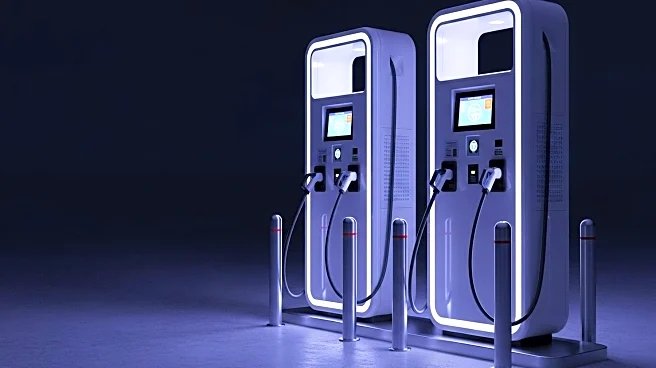What's Happening?
The U.S. is set to discontinue federal incentives of up to $7,500 for electric vehicle purchases, prompting automakers to assess the 'natural demand' for EVs. The incentives, in place since 2008, have been crucial in boosting EV sales, which are expected to decline following their removal. Industry leaders, including General Motors CFO Paul Jacobson, anticipate a temporary drop in demand before stabilizing. Automakers have been encouraging consumers to purchase EVs ahead of the incentive expiration, with Tesla prominently featuring a countdown on its website.
Why It's Important?
The end of federal incentives marks a significant shift in the U.S. EV market, testing its maturity and ability to sustain growth independently. Automakers may face challenges in maintaining sales momentum, potentially impacting production plans and workforce decisions. The policy change could influence the competitive landscape, with companies needing to innovate and adjust strategies to attract consumers without financial incentives. The development may also affect the broader push towards sustainable transportation and climate goals.
What's Next?
Automakers are likely to explore alternative strategies to maintain EV sales, such as offering new incentives or enhancing vehicle features. The industry will closely monitor consumer behavior and market trends to adapt to the new environment. Policymakers and industry stakeholders may engage in discussions on future support mechanisms for EV adoption, considering environmental and economic implications.










